Badgers face many threats, from road traffic collisions, illegal persecution and snares to becoming trapped or injured on building sites.
Lancashire Badger Group has trained volunteers who will be able to provide advice over the phone or collect injured or trapped badgers.
Emergencies
If you find an injured badger, you need to ensure you look after yourself first then the badger. Badgers are quite robust animals, and they don’t always take kindly to your intervention.
Contact
Contact us on 08448 707 908.
Be ready to provide the following information:
Your mobile phone number and name.
The postcode or street name or even better a what 3 words location or grid reference of where you are.
State the nature of the injury if known ie Road Traffic Accident, Snaring, Entrapment, etc.
Who to contact if persecution
If the badger has been injured due to persecution you need to contact the police on 101 and make a note of the log number provided. If the crime is in progress then you need to dial 999, if there is a risk to you or the badger. Badgers are protected by law.
Cubs
If you think you’ve found a badger cub call us on our emergency line immediately for advice. Don’t approach the cub but do observe it from a distance.
Contact us on 08448 707 908 and select Option 1.
Advice
Please do not attempt to handle the badger, place a blanket/coat over the badger, if one is available.
Stay with the animal if it is safe to do so, we will respond as fast as we can. Our response team is staffed by volunteers 24/7.
Between the hours of 8am and 10pm you can also contact the RSPCA, Tel (0300 1234 999).
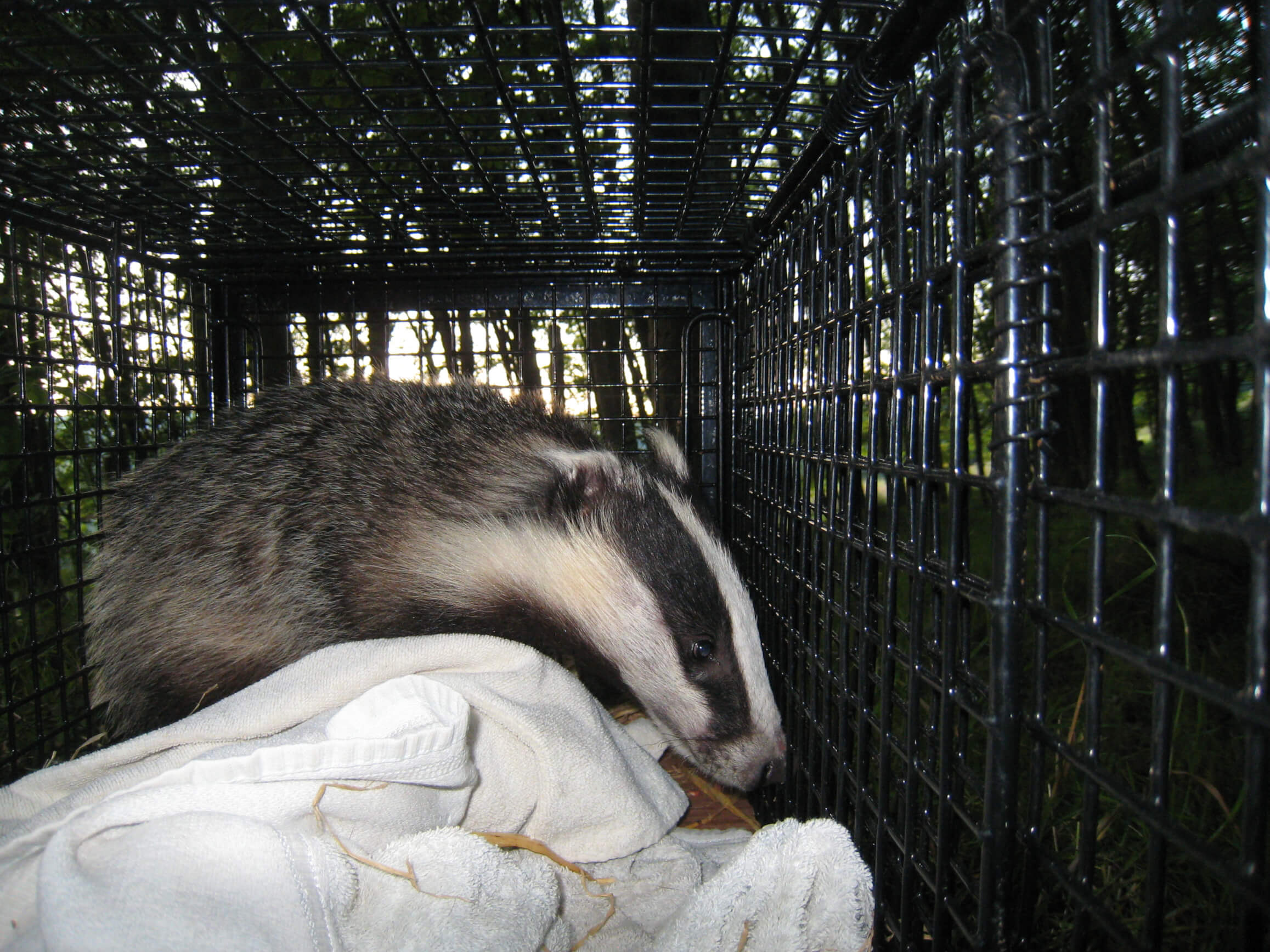
Road Traffic Collisions
It has been estimated that up to 50,000 badgers may be killed on our roads each year. If safe to do so, it is worth checking what appears to be a dead badger.
Help
If you find an injured badger, please contact the RSPCA emergency line (0300 1234 999). We may be able to provide support or advice to their officers. Do not approach the animal as it will be under stress and may bite or run. Wait and watch from a distance. If you can safely warn other road users of any obstruction please do so, but do not put yourself at any risk.
Advice
If the badger moves away, try to follow at a safe distance but don’t try to stop it. It’s important that someone stays if possible to guide rescuers to the badger’s location. The RSPCA is unable to send officers to an animal if they do not know it is still at the scene. If we cannot find it, we can’t help it. If you cannot stay, make a detailed note of the location and ensure the contact is aware.
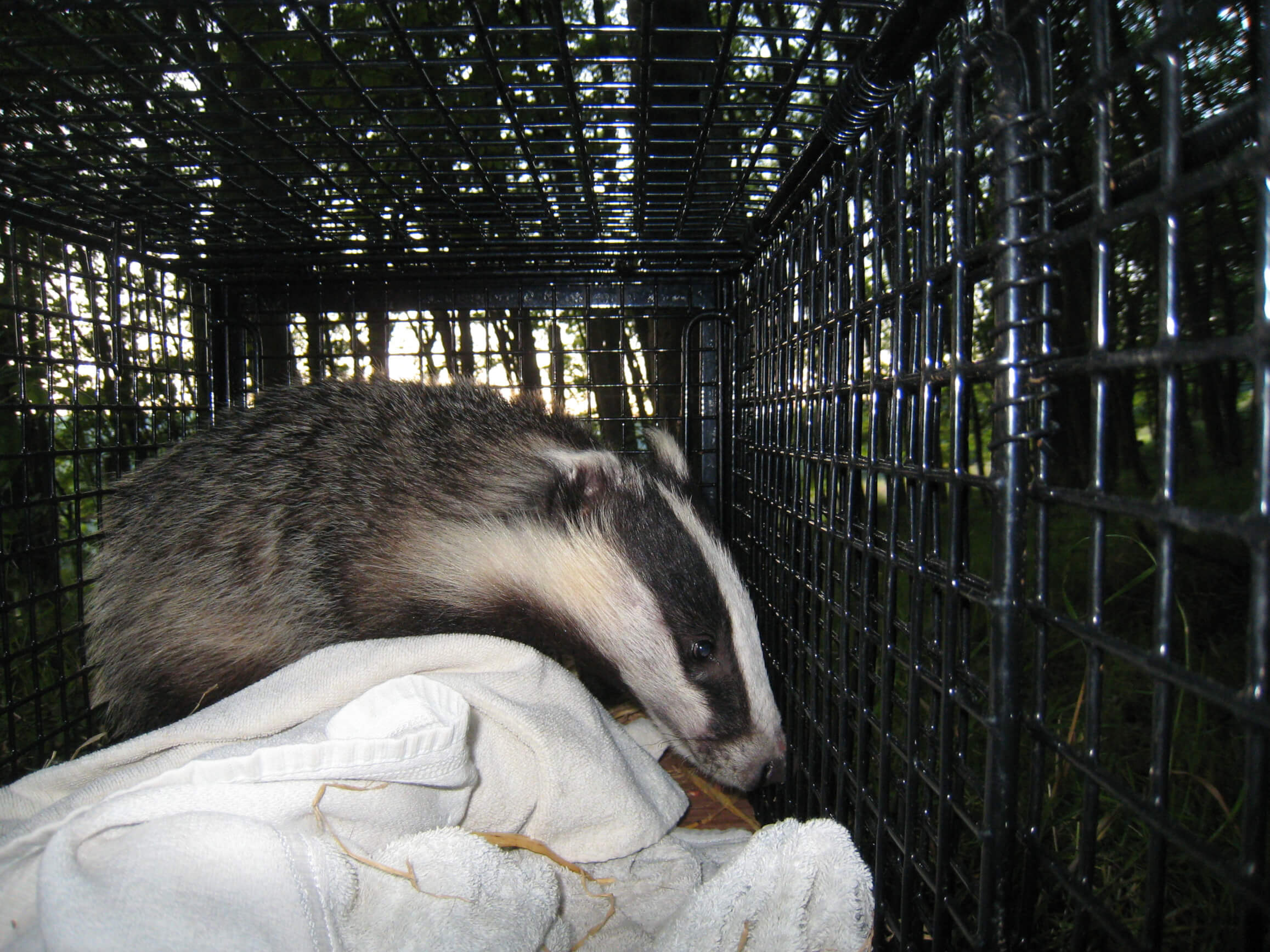
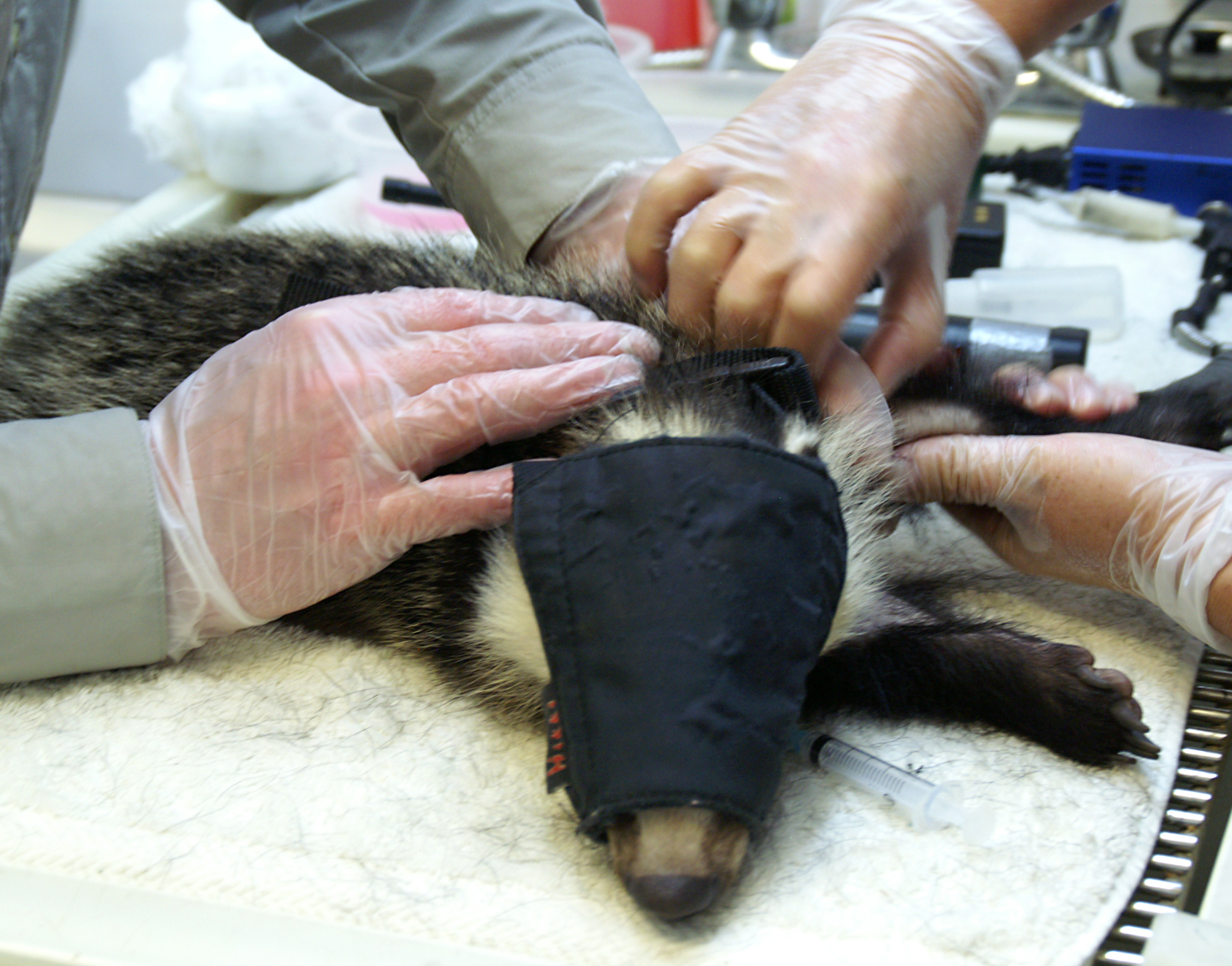
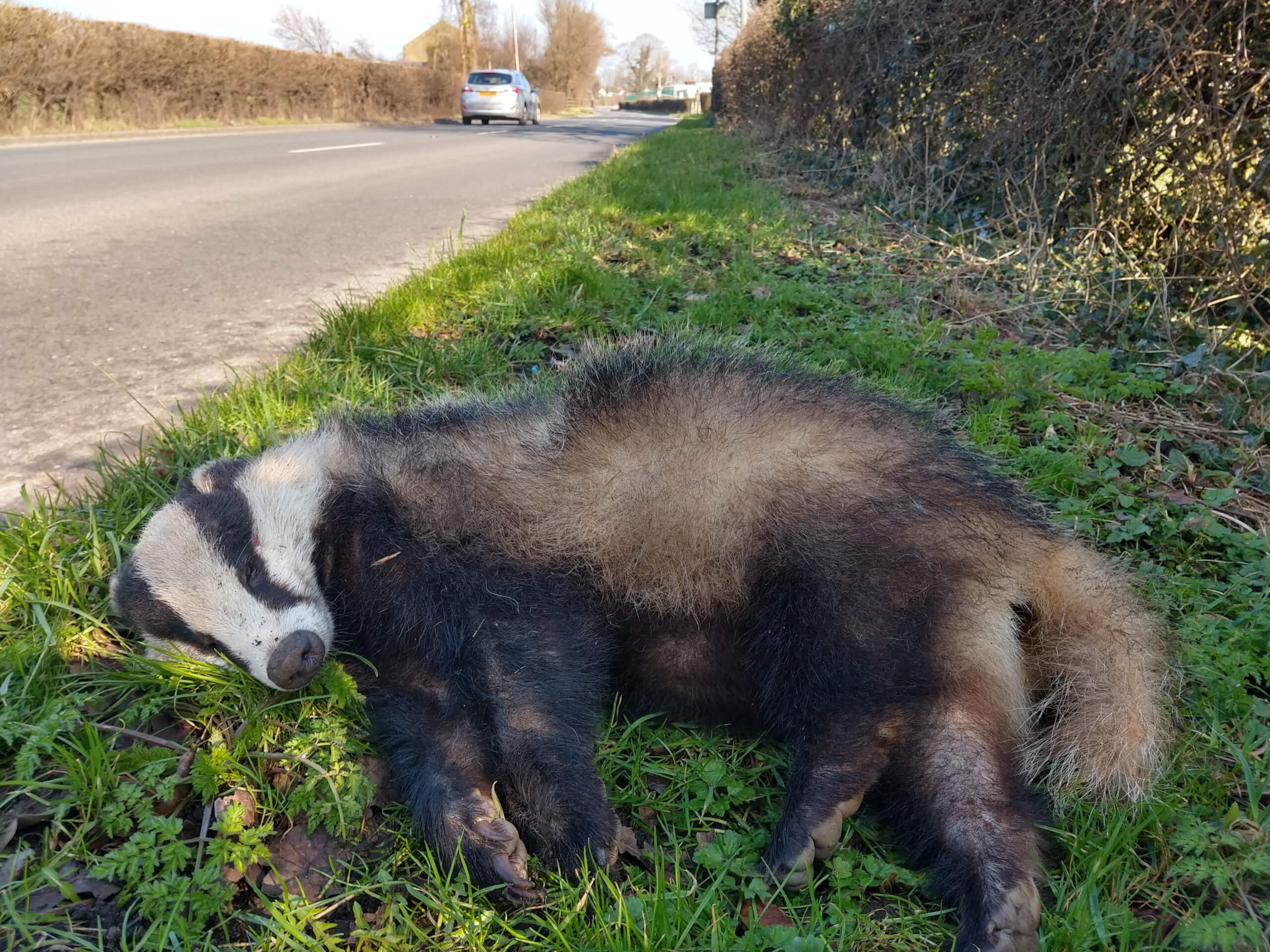
Snares
If you find a badger in a snare DO NOT ATTEMPT TO REMOVE IT.
Help
Snares can do serious damage to skin tissue which is not immediately obvious. If a badger does not receive treatment and monitoring over a period of several days, it may die. Please do not release the animal by cutting the snare as the badger will go to ground and we will not be able to help or provide treatment.
Advice
Please DO contact the RSPCA emergency line (0300 1234 999) or our emergency line (08448 707908 – option 1) if they cannot help. Cover the animal with a coat to keep it warm and calm. Stay nearby so that you can help rescuers to find it. For more information on snares visit our crime page.
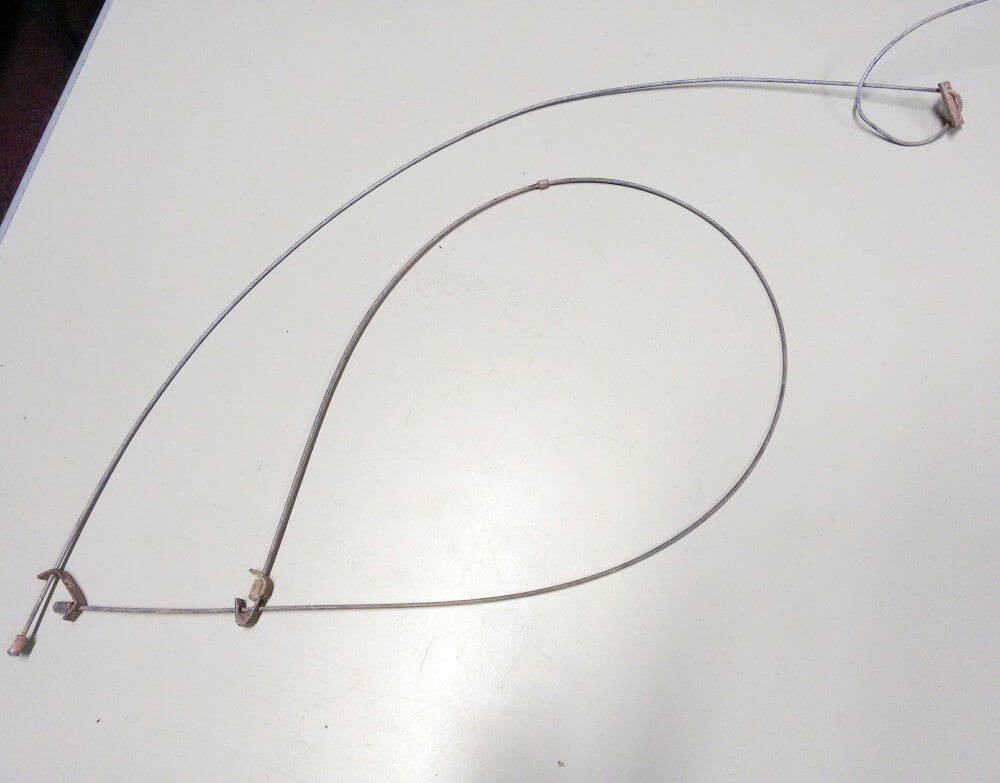
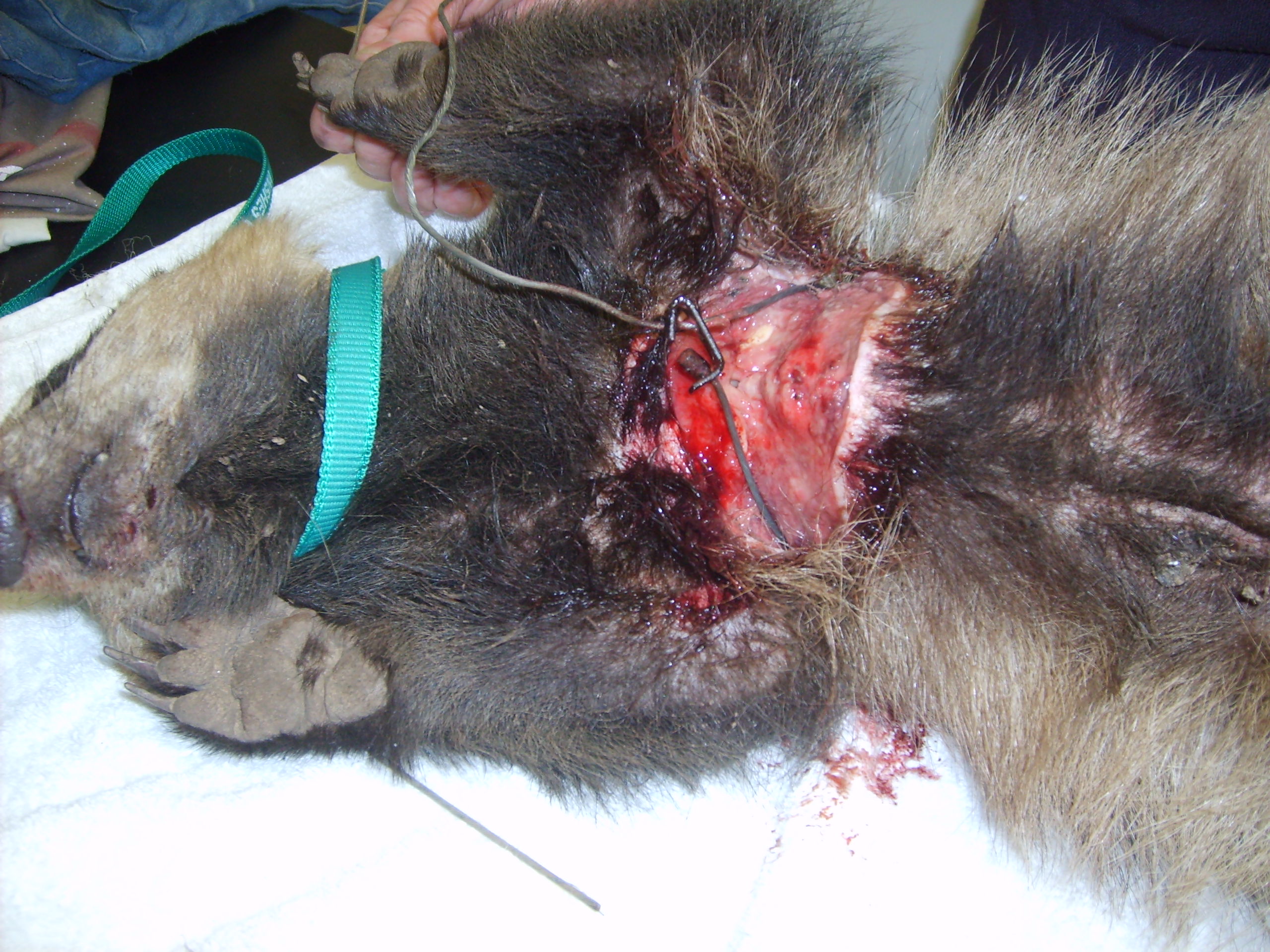
Persecution
Although protected by the Badger Protection Act 1992 badgers are still persecuted and harmed. This can take many forms, please see examples detailed below.
Badger baiting
Where dogs are set on a badger in an arena/pit and bets are placed on how long the badger will survive.
Lamping
Where specially bred dogs (usual cross breeds of lurcher and bull terrier types) are let loose in open pastures where badgers are foraging. Chasing and eventually killing the badger.
Sett entrance blocking
This can include stones, buckets or logs in the entrances or whole setts covered with soil. Sett blocking by terrier men employed by fox hunting groups to stop foxes going to ground when they are supposedly trail hunting.
Sett Damage or Destruction
This can happen in a variety of situations from farmers ploughing fields to development.
Setts can be damaged or completely destroyed during development either because setts haven’t been identified by ecological survey or because landowners or contractors are not taking due care.
Forestry
Forestry work where trees are felled directly onto active setts, causing damage to tunnels and chambers underground.
Advice
If you encounter any of the above scenarios with developments and forestry work we would like to hear from you, all information will be treated in the strictest confidence.
Should you come across individuals with dogs acting suspicious at an active badger sett or out lamping after dark, please do not approach them or challenge them. If it is safe to do so, call the police on 999 as a crime in progress. Make a description of the people, what they are wearing, the type of dogs, colours etc. These people will think nothing of causing you serious harm so please be very careful. We would be interested to receive any information on people who you may suspect of carrying out wildlife crime. All information will be dealt with in the strictest confidence. Contact us at spo@lancashirebadgergroup.org.uk
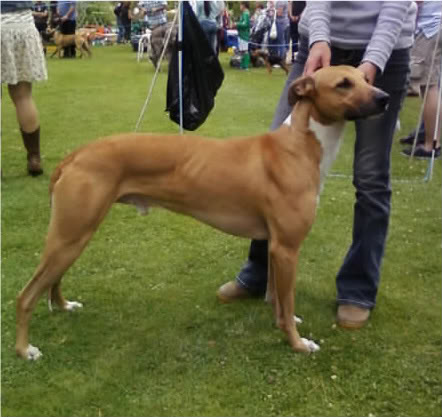
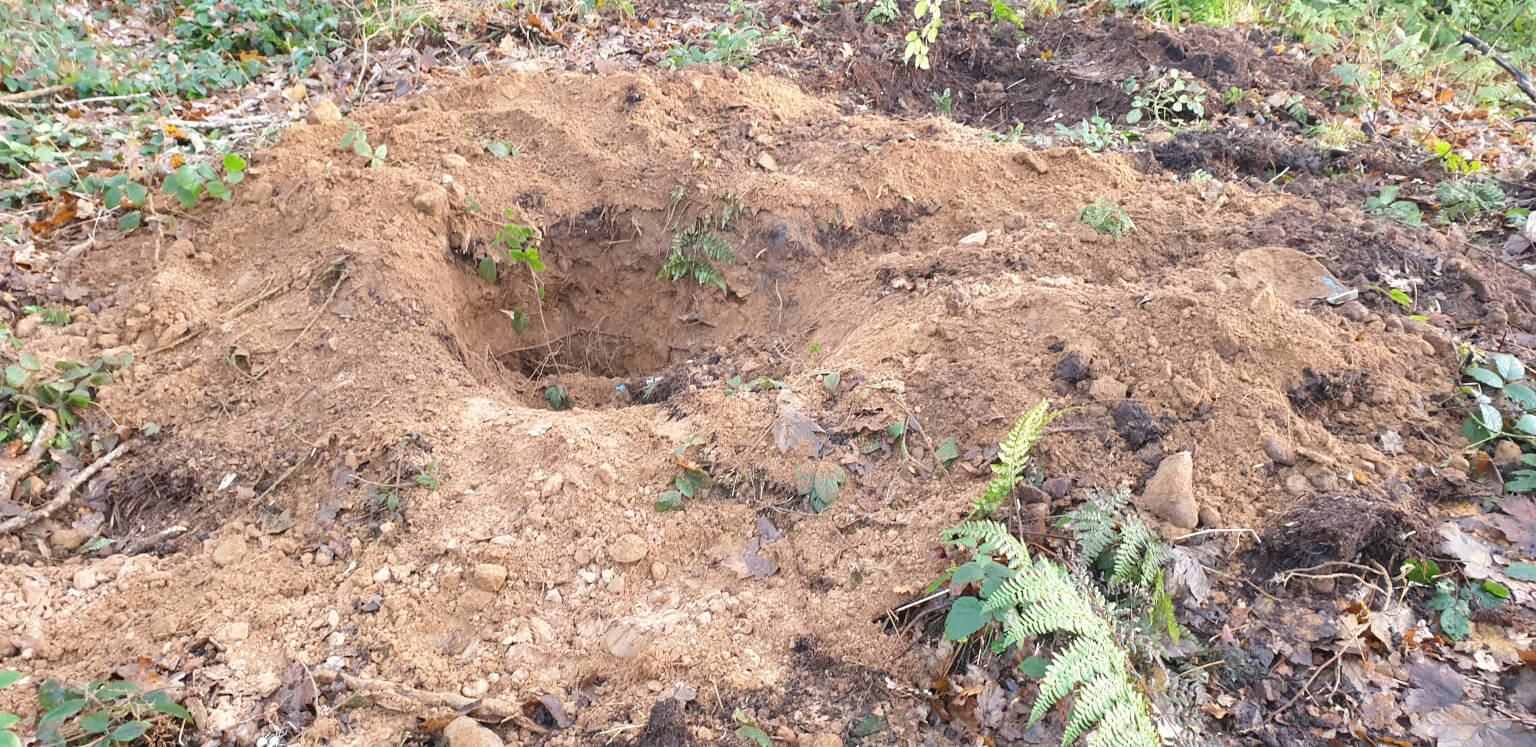
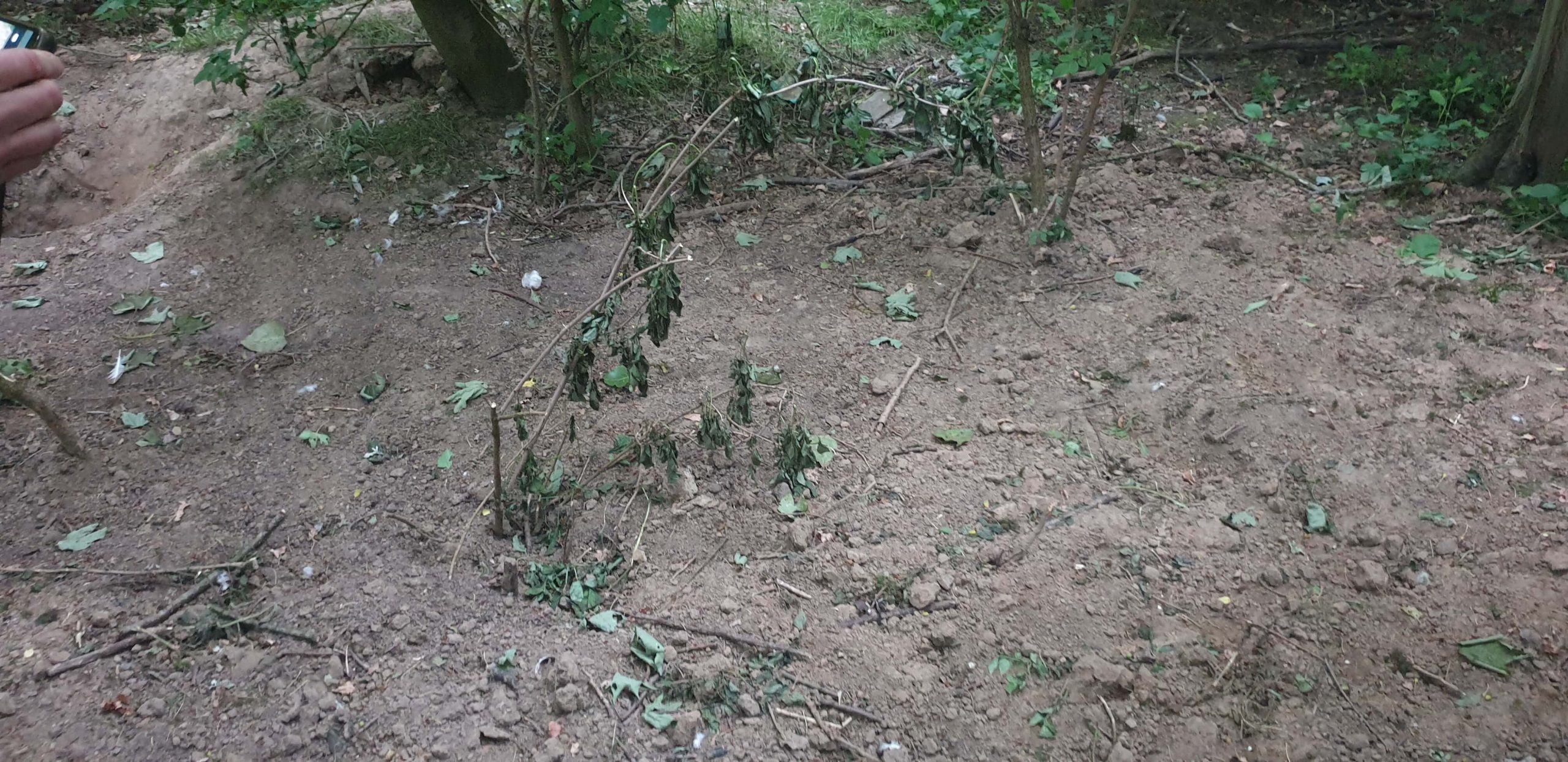
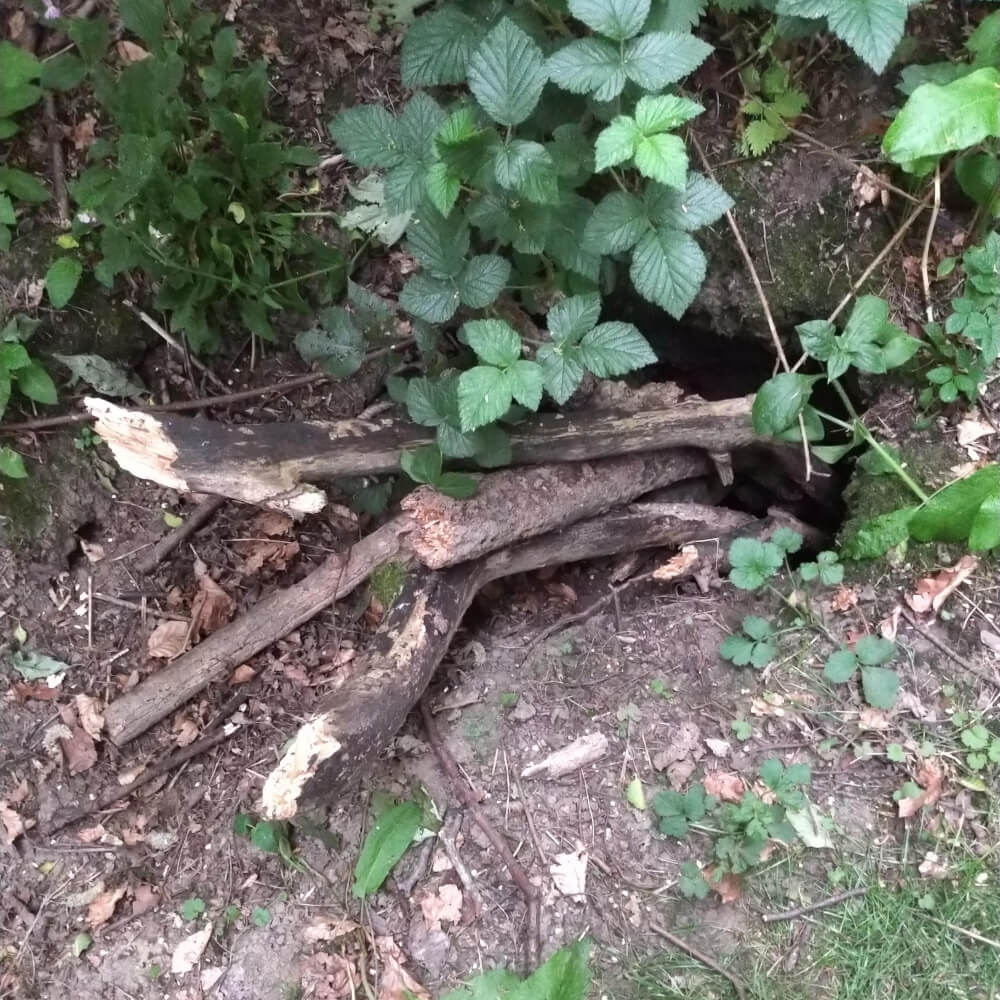
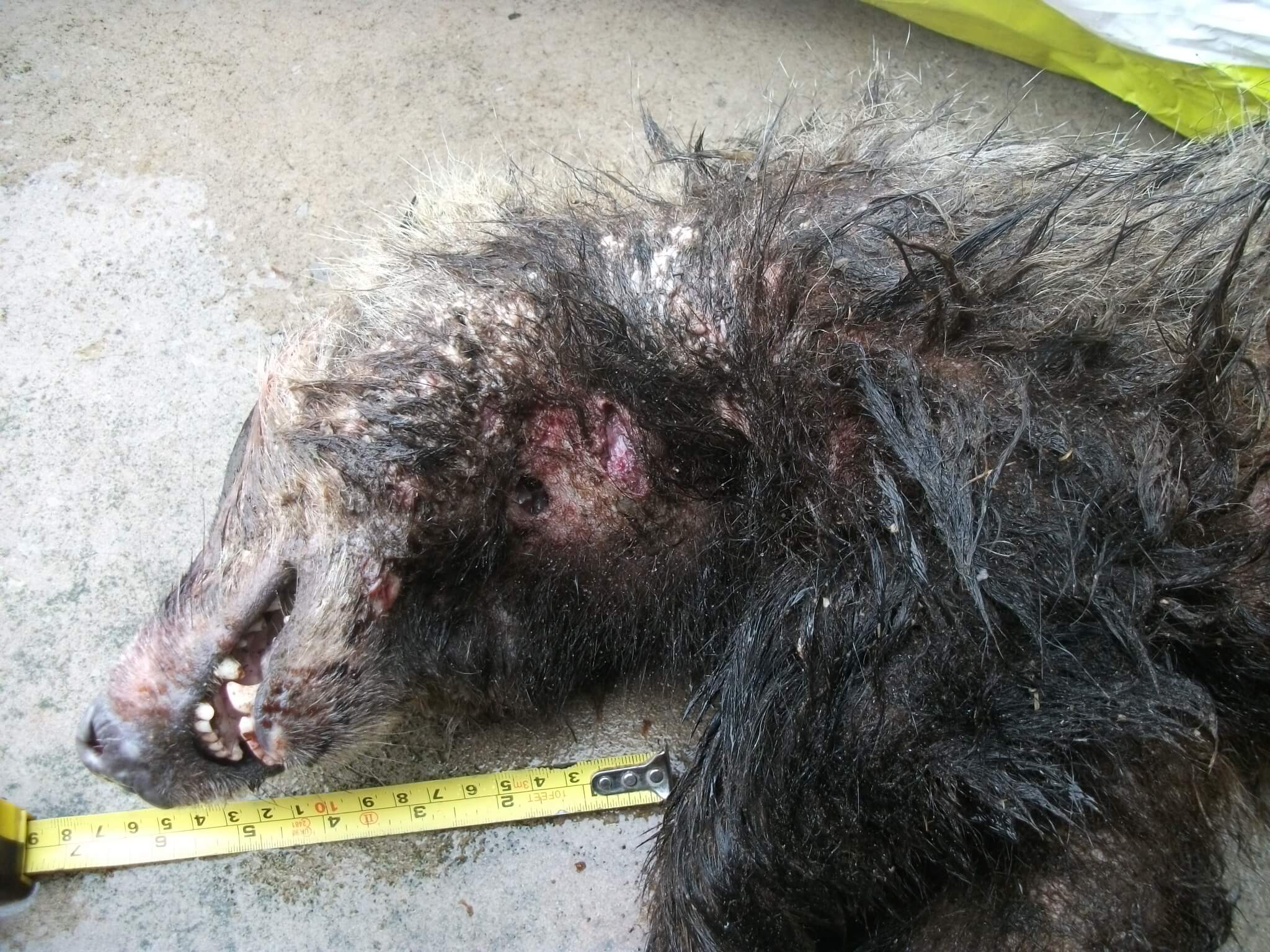
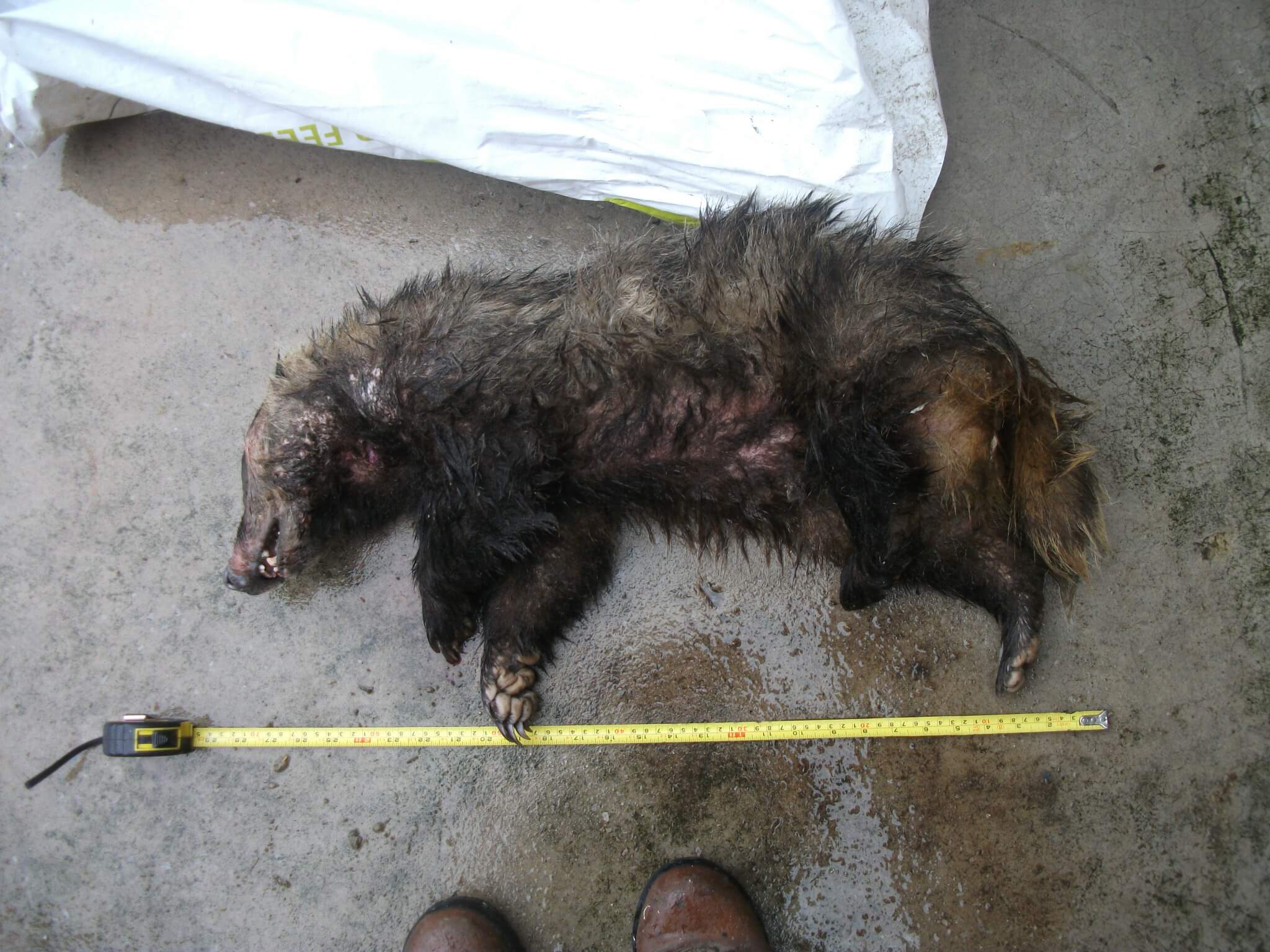
Development
As we increasingly encroach further into the countryside with housing developments, business parks and infrastructure, the more habitat our native wildlife loses. This in turn increases the interaction and conflict between wildlife and humans, usually to the detriment of the wildlife.
Threat
Badgers are very susceptible to being disturbed, moved or killed by mistake. Due to the threat of badger persecution, people are sometimes reluctant to divulge sett locations, leading to setts being destroyed when land is developed. Land they have inhabited for decades and in some cases possibly centuries.
Contact
Whether you are a member of the public worried about a new development. An ecologist carrying out protected species surveys on a particular development or a developer who wishes to protect badgers from harm on your site please contact us at enquiries@lancashirebadgergroup.org.uk planning@lancashirebadgergroup.org.uk
Experience
We have the experience and knowledge to help you through the process. Early intervention in all cases is key but whatever stage you are at in the process, please contact us. We only have the badger’s welfare at heart.
Database
We also have a database of badger sett locations for Lancashire which is regularly updated as new setts come to our attention. We will, for a fee and subject to checks, carry out a desktop survey for your development. To access this service please contact
database@lancashirebadgergroup.org.uk
Badgers in Gardens
Some people are fortunate to have badgers visiting their gardens and we are regularly asked about what are the best things to feed badgers.
Recommendation
We would recommend that any food that is left out for the badgers is only small quantities so that the badgers don’t rely on it instead of foraging, then if you forget or are away on holiday the badgers won’t go hungry and also there is less chance of the badgers digging your garden over looking for food. If you wish to deter other animals and rodents from eating the food put the food in a dog bowl and cover it with a large stone, only the badger is strong enough to move the stone.
Hygiene
Remember good hygiene, wash hands or wear gloves when handling the food or bowl and wash the bowls regularly.
Recommended foods
We recommend red peanuts or nuts and cereal mix, dried dog or cat food not processed food that can be salty and sugary also avoid dairy products. The occasional treat won’t harm them but not every night.
Avoidance
Also avoid training badgers to feed indoors or from your hand, it is very cute and there are lots of videos online but it is better that badgers are wary of humans, remember not everyone is as nice as you.
We fully understand that badgers can be a nuisance in gardens, we know that they can dig up lawns, eat bulbs and generally make a mess.
Contact
Please contact us on enquiries@lancashirebadgergroup.org.uk
for advice on your specific problem with badgers in your garden, we are happy to help.
